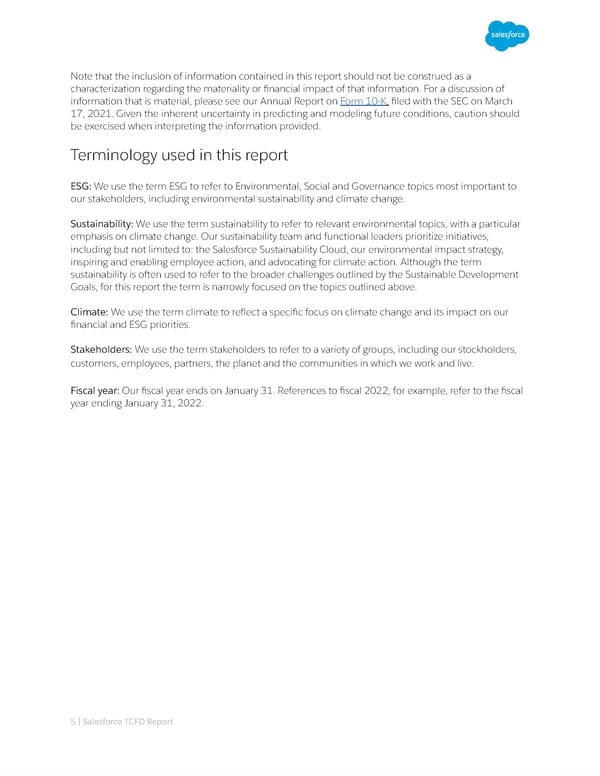Note that the inclusion of information contained in this report should not be construed as a characterization regarding the materiality or financial impact of that information. For a discussion of information that is material, please see our Annual Report on F orm 10-K , fi led with the SEC on March 17, 2021. Given the inherent uncertainty in predicting and modeling future conditions, caution should be exercised when interpreting the information provided. Terminology used in this report ESG: We use the term ESG to refer to Environmental, Social and Governance topics most important to our stakeholders, including environmental sustainability and climate change. Sustainability: We use the term sustainability to refer to relevant environmental topics, with a particular emphasis on climate change. Our sustainability team and functional leaders prioritize initiatives, including but not limited to: the Salesforce Sustainability Cloud, our environmental impact strategy, inspiring and enabling employee action, and advocating for climate action. Although the term sustainability is often used to refer to the broader challenges outlined by the Sustainable Development Goals, for this report the term is narrowly focused on the topics outlined above. Climate: We use the term climate to reflect a specific focus on climate change and its impact on our financial and ESG priorities. Stakeholders: W e use the term stakeholders to refer to a variety of groups, including our stockholders, customers, employees, partners, the planet and the communities in which we work and live. Fiscal year: Our fiscal year ends on January 31. References to fiscal 2022, for example, refer to the fiscal year ending January 31, 2022. 5 | Salesforce TCFD Report
 Salesforce TCFD Report Page 4 Page 6
Salesforce TCFD Report Page 4 Page 6